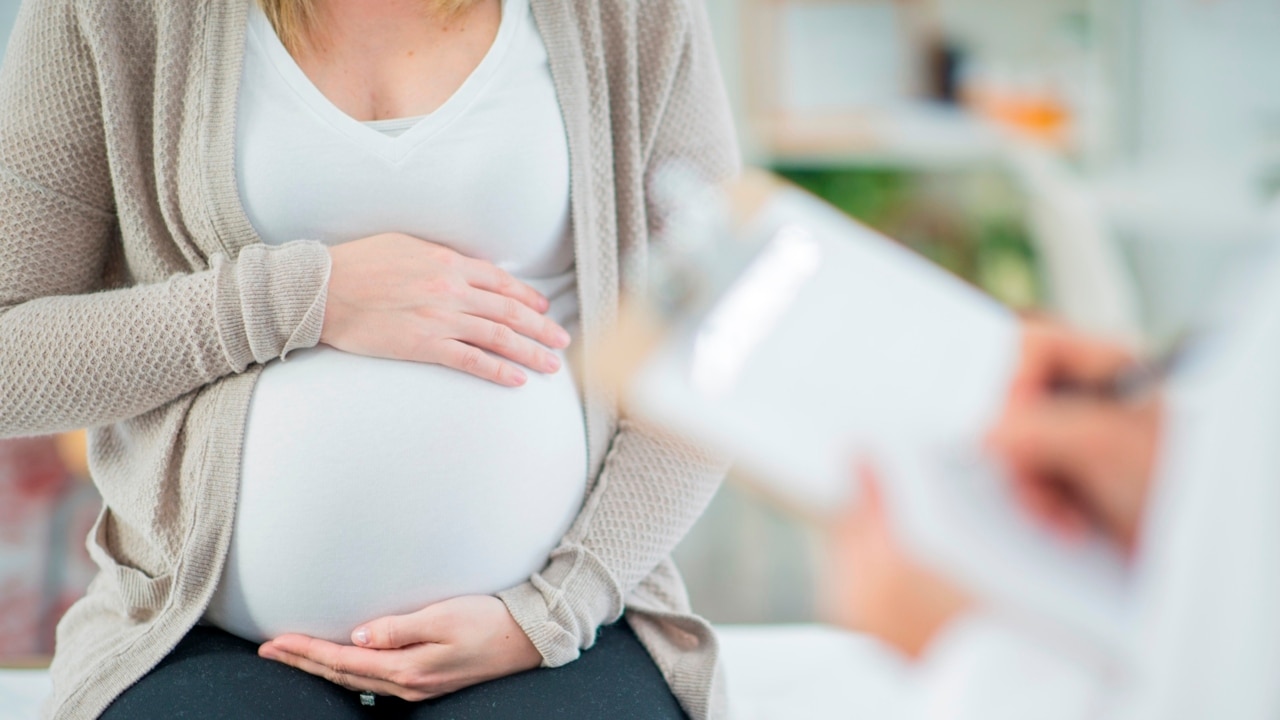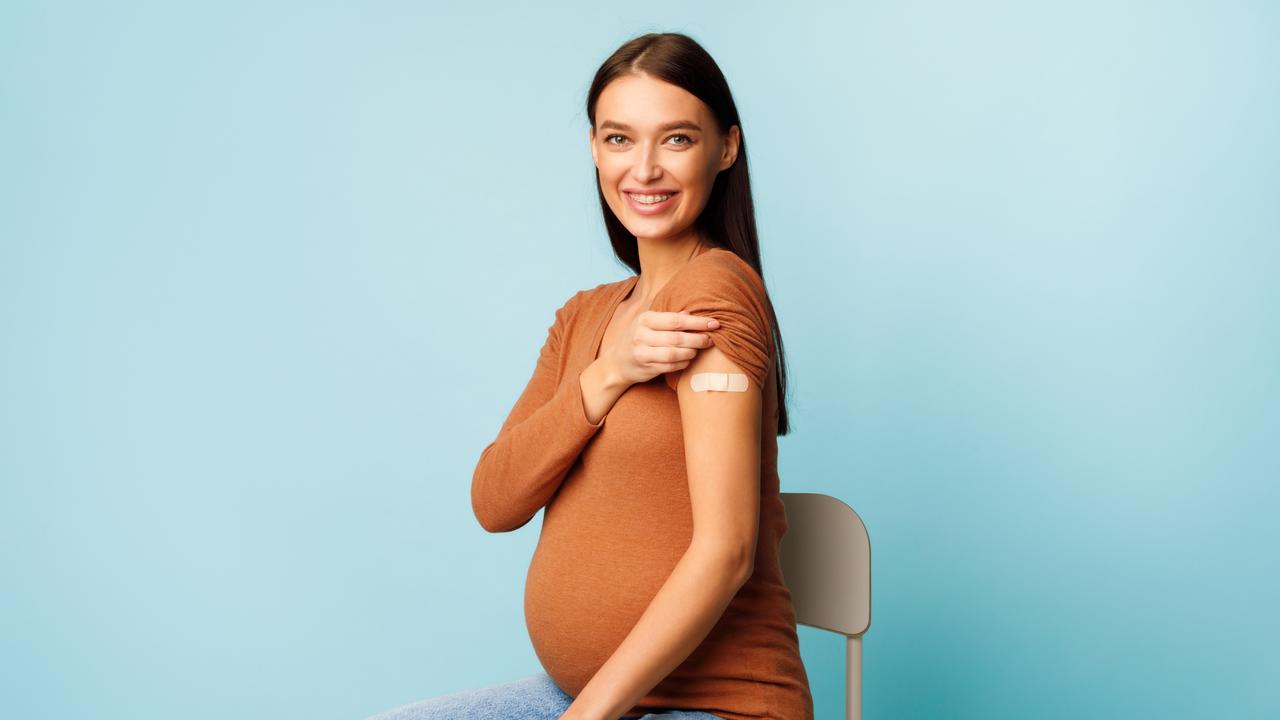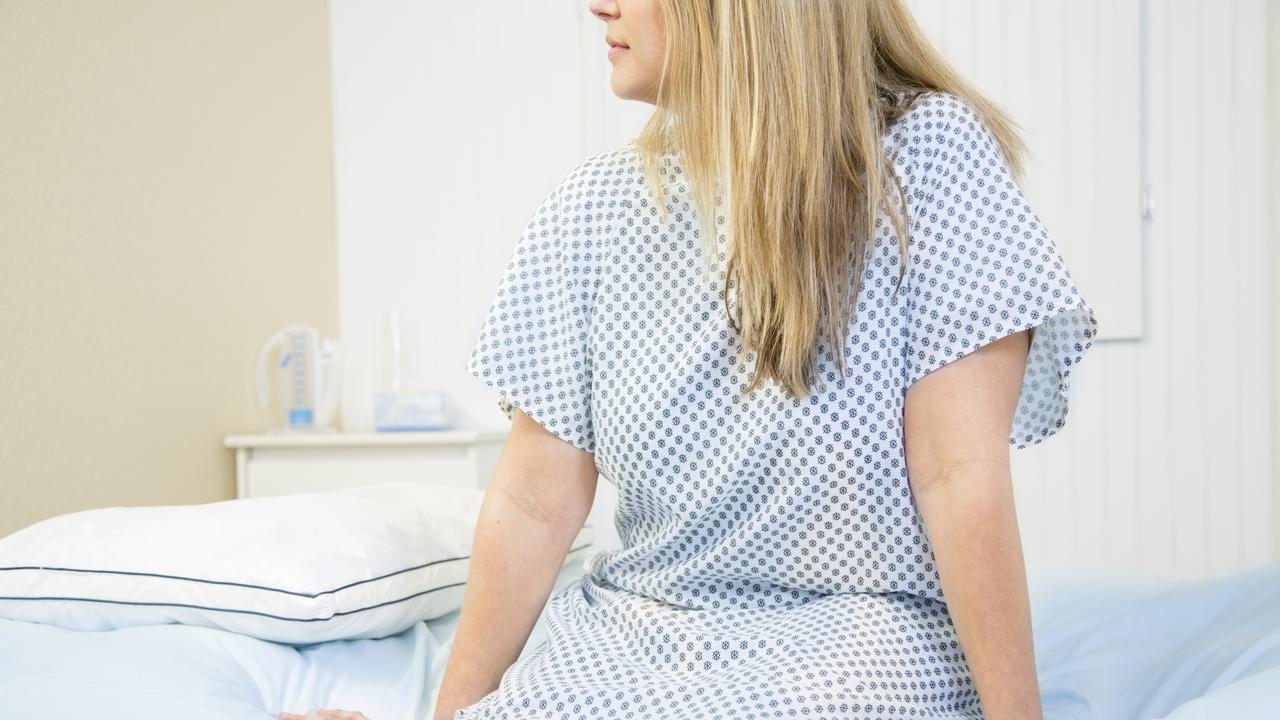Covid-19 vaccination guide for pregnant women: Your questions answered
Pregnant women have been urged to get the Pfizer vaccination as soon as they are offered one as the Department of Health warns of an increased risk of illness from Covid-19.

QLD News
Don't miss out on the headlines from QLD News. Followed categories will be added to My News.
Pregnant women have been urged to get the Pfizer vaccination as the Department of Health warns of an increased risk of illness from Covid-19.
The Department last month released a vaccination decision guide for women who are pregnant, breastfeeding or planning pregnancy after they were deemed a priority group based on health advice.
Here are the answers to the questions pregnant women might have when considering the jab, based on advice from the Australian government.
ARE COVID-19 VACCINATIONS SAFE WHILE I’M PREGNANT?
Yes, Covid-19 vaccines have been shown to be safe in pregnant women, based on accumulated real-world evidence from other countries.
A US study of over 35,000 pregnant women who had a vaccine showed that the side effects after vaccination were very similar in pregnant women when compared to non-pregnant women.
Pregnant women appeared slightly more likely to report pain at the injection site, but were less likely to report generalised symptoms such as fever or tiredness.
The study also reported the pregnancy outcomes for 827 women whose pregnancies were completed. They did not identify any safety concerns for women who received a Covid-19 vaccine in pregnancy.
Complications such as premature delivery, stillbirth, small for gestational age infants and congenital anomalies occurred at a similar rate to what is seen in the general population.

WHICH BRAND OF THE VACCINATION SHOULD I GET?
Pfizer is the preferred Covid-19 vaccine for people under 60 years in Australia, and for women who are pregnant, breastfeeding or planning pregnancy.
This is for two reasons:
• Research has shown that Pfizer is safe for pregnant women. This research has not yet been carried out for AstraZeneca.
• AstraZeneca is associated with a rare risk of a clotting condition called thrombosis with thrombocytopenia syndrome, which appears to be more common in people under 60 years of age.
WHAT IF I’VE ALREADY RECEIVED A DOSE OF ASTRAZENECA?
Pregnant women who have already received a first dose of AstraZeneca can receive either Pfizer or AstraZeneca for their second dose, although Pfizer is preferred.
You and your provider may wish to consider the following factors:
• There is a growing body of evidence supporting the safety of Covid-19 vaccines in pregnancy
• There are still very limited data on the safety of viral vector vaccines (such as AstraZeneca) in pregnancy
• There is comparatively less data on the safety and efficacy of mixed vaccine schedules than completing the series with the same vaccine.

WHY HAVE THE RECOMMENDATIONS FOR PREGNANT WOMEN CHANGED?
Pregnant women were not included in the first clinical trials for Covid-19 vaccines, so at the time of initial guidance there was limited evidence confirming the safety of the vaccines during pregnancy.
The initial advice from immunisation expert groups was therefore cautious, and Covid-19 vaccines were not routinely recommended in pregnancy.
Over time, evidence from other countries has accumulated and reports show that Pfizer is safe to use in pregnant women.
Emerging research also demonstrates that pregnant women have a similar immune response to the vaccines compared to non-pregnant women, and are therefore likely to have similar protection against Covid-19.
Research also shows that the antibodies produced by vaccination cross the placenta and may provide some protection to newborn babies.
WHAT ARE THE BENEFITS IF I GET THE JAB WHILE PREGNANT?
Pregnant women with Covid-19 have a higher risk of stillbirth or premature delivery.
Their babies are also more likely to show distress during delivery, or to need treatment in an intensive care unit.
Vaccination during pregnancy may reduce the risk of premature delivery of the baby, if it prevents infection in the mother.
Several studies have shown that the antibodies induced by Covid-19 vaccine can cross the placenta, particularly in those vaccinated early in pregnancy, and who received both doses prior to delivery. These antibodies may provide your baby with some protection against Covid-19 for the first few months of life but studies are yet to confirm such protection.

WHEN IS THE BEST TIME TO HAVE A COVID-19 VACCINE IF I AM PREGNANT?
It’s not yet known if there is an optimal time to have a Covid-19 vaccine during pregnancy, either for the benefit of the mum or to protect her baby.
Therefore, it is recommended to get the jab as soon as you are offered one. Pfizer can be given at any stage of pregnancy.
CAN I JUST HAVE ONE DOSE DURING PREGNANCY, AND DELAY THE SECOND?
Having only one dose will provide partial protection against Covid-19, and it’s not yet know how long this protection will last.
Having the second dose is important to gain optimal protection and a single dose is not as effective at preventing infection, but reduces the risk of severe illness. It is recommended to have two doses of Pfizer, 3 to 6 weeks apart.
If you choose to delay the second dose, you will not need to repeat the first dose.
HOW DO MRNA VACCINES WORK?
Obstetrician Dr Bronwyn Hamilton explains:
• mRNA technologies have been around since the 1990’s.
• Many vaccines have been studied and developed using this technology such as for CMV (Cytomegalovirus) and Zika virus but funding has been hard to come by.
• COVID-19 presented the world with a challenge needing a solution and the funding and interest in this disease has meant that many labs were able to work on a COVID-specific vaccination, using the technology that was already in development.
• All vaccinations rely on the fact that our immune system, remembers foreign proteins and produces antibodies and cells to remove those proteins or neutralise them.
• mRNA vaccines work by introducing tiny pieces of genetic code/(a recipe to make a protein) into some cells in our body.
• For the Covid Vaccine (Pfizer/Moderna), the mRNA is injected into the muscle cells of the arm
• The spike protein that is created by the mRNA then sits on the outside of the muscle cells
• The mRNA fragments are then completely destroyed by the muscle cells and are no longer detectable after 48-72 hours.
• The body makes antibodies to the spike protein and these antibodies are then able to neutralise the SARS-CoV-2 (COVID 19 ) virus if it ever enters the body at a later stage
The Whooping cough vaccine (Boostrix) is actually a different type of vaccine – it contains antigens/pieces of the Bordetella pertussis bacteria so the body makes antibodies against this part of the bacteria to protect women and the unborn baby against whooping cough.
ARE THERE ANY MEDIUM TO LONG TERM EFFECTS KNOWN FROM THE COVID VACCINE ON A WOMAN’S CHILD?
Dr Hamilton says it is estimated more than 150,000 pregnant women worldwide have been vaccinated with an mRNA vaccine for Covid 19.
The largest research study on outcomes for pregnant women includes a group based in the USA examining almost 36000 women. They found no increase in adverse pregnancy and neonatal outcomes compared to the usual expected background rate of these conditions. This was published in a very high quality peer reviewed journal (NEJM) in June 2021. In terms of side effects, pregnant people appeared slightly more likely to report pain at the injection site but were less likely to report generalised symptoms such as fever or tiredness. Fever of 38°C or above was reported in fewer than 1% of pregnant people who had the Pfizer vaccine after the first dose, and fewer than 5% after the second dose. The findings from this large study are supported by other smaller studies.
In another study from Israel, nearly 7500 women were immunised and again, they found no increase in pregnancy complications and a significantly lower risk of infection in the vaccinated group. This was published also in a very high quality journal (JAMA) in July 2021.
These are obviously early studies and all research is ongoing with regards to pregnancy outcomes. There is no long-term data with regards to outcomes for a woman’s offspring as the vaccine is new. Whilst there is no biological plausibility given there are no effects on the placenta from the vaccine according to recent studies, we look forward to long-term outcome studies as they become available. Having the vaccination whilst pregnant also has the added benefit of passing protective antibodies onto the baby so they may have some protection against Covid-19.
It goes without saying, there is increased anxiety for pregnant women given this vaccine is new and wanting to do all that is possible to protect their unborn child.
WHAT ARE THE RECOMMENDATIONS FOR BREASTFEEDING WOMEN?
Pfizer has been recommended for breastfeeding women and they don’t need to stop breastfeeding before or after the vaccination.
IS PFIZER SAFE FOR BREASTFEEDING WOMEN?
There is limited research on the safety of Covid-19 vaccines in breastfeeding women, however, there are no theoretical safety concerns. Several small studies have shown that breastfeeding women have similar side effects after having a Covid-19 vaccine compared to the general population.
The mRNA in Pfizer is rapidly broken down in the body and it’s not believed that it passes into breastmilk. Even if it did, it would be quickly destroyed in the baby’s gut and is therefore extremely unlikely to have any effect on your baby.
ARE THERE ANY BENEFITS FOR MY BABY FROM HAVING COVID-19 VACCINE WHILE BREASTFEEDING?
Several small studies have shown that the antibodies induced by Covid-19 vaccine pass into breastmilk. This may provide your baby with some protection against Covid-19, however there have not yet been any studies to confirm such protection.
WHAT ARE THE RECOMMENDATIONS FOR WOMEN PLANNING PREGNANCY?
Pfizer is recommended for women who are planning pregnancy and you don’t need to avoid
becoming pregnant before or after vaccination.
Getting vaccinated before conceiving means you are likely to have protection against Covid-19 throughout your pregnancy.
Vaccination does not affect fertility.
You are not required to have a pregnancy test before getting vaccinated.





